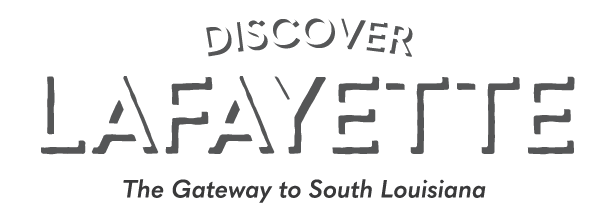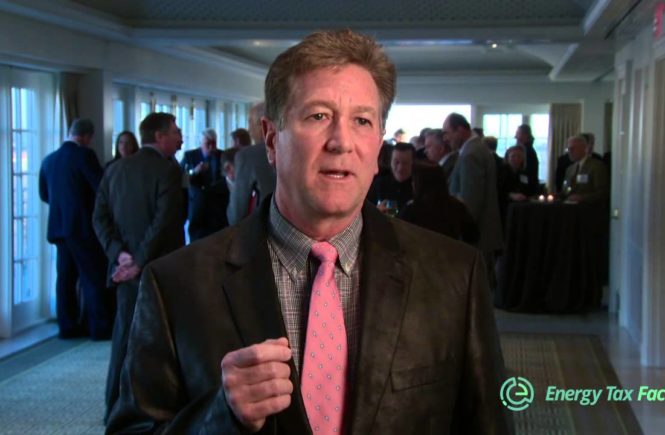Podcast: Play in new window | Download (Duration: 25:44 — 42.7MB)
Mark Miller has worked in the oil and gas business since 1981 and is a veteran of the dramatic ups and downs the industry has experienced. In this episode of Discover Lafayette, Miller discusses how the overnight collapse in demand due to the Covid-19 pandemic, in conjunction with a war over market share between Saudi Arabia and Russia, has caused a glut of oil on the market causing prices to tumble to unsustainable lows.
Miller is a nationally recognized spokesperson for the oil industry and recently served as Chair of the Independent Petroleum Association of America (IPAA), a group that represents thousands of smaller independent natural gas and oil producers and the service industries that support their operations. His company’s career production is based within a fifty-mile radius of Lafayette.
He is a passionate proponent of his industry which reinvests billions of dollars back into the U. S. economy; Miller shared that “83% of oil wells and 90% of the natural gas wells onshore in the U. S. are drilled by independent producers. IPAA’s website states that the average independent has been in business for 26 years and employs 12 full-time and three part-time employees. Independent producers have certainly been the backbone of Lafayette and South Louisiana’s economy providing well-paying jobs and supporting arts and culture, as well as raising the quality of life for the region.
Lafayette has proudly been home to the “Oil Center” since the industry’s heyday beginning post-WWII in the 1950s, yet the landscape has changed dramatically. The recession caused by the 2014 drop in oil prices caused the consolidation of capital and an exodus of the major oil companies such as Chevron and Texaco who may never return. There are very few independent producers of oil and gas left in South Louisiana, and Miller’s company, Merlin Oil and Gas, is one of them. He says that the renowned “legacy lawsuits” have kept independents out of Louisiana and new business has declined due to the fear of litigation. “What’s left of the business is being squeezed from all sides.” Current market conditions may be the downfall of the remaining companies who have held on and were just beginning to successfully emerge from the precipitous drop in prices in late 2014.

Mark Miller of Merlin Oil and Gas says that “legacy lawsuits” have kept independents out of Louisiana and new business has declined due to the fear of being pulled into litigation. “What’s left of the business is being squeezed from all sides.” The combination of the reduced demand for oil due to the pandemic along with the war for market share between the Saudis and Russians has turned the market on its head, causing oil prices to fall by more than two-thirds since the beginning of 2020.
The normal factors governing supply and demand are out of whack as people around the globe stay at home, work from home, and avoid unnecessary excursions and travel on airlines. According to oil industry expert David Yergin writing in Foreign Affairs Magazine, “A price war, with producing nations (Saudi Arabia and Russia) battling for market share, has become lodged in the larger crisis of the novel coronavirus pandemic and what will likely be the worst recession since World War II. The resulting collapse in demand will be bigger than any recorded since oil became a global commodity. Oil prices are already down two-thirds since the beginning of 2020 and still falling.”
Saudi Arabia holds the largest oil reserves in the world and can produce oil cheaply. While the U. S. has historically been dependent on imported oil and gas, the development of fracking techniques has enabled our nation to become energy sufficient. Between 2016 and 2019, U. S. production grew by 60%. The federal government lifted restrictions on the exporting of oil in late 2015 and this changed the international market place. It was also a very important move for strategic independence for the U. S.
Today, it is believed that the Saudis and Russians want to knock the U. S. shale producers out of the market. With current prices of a barrel of oil hovering around $22 – $24 per barrel, many independents may be forced to shut in their wells as the price to produce far outweighs the going price per barrel. As Miller says, “You can’t just give it away.” And storage facilities for the excess product are at near capacity; even if there was enough capacity, Miller explained that not all companies have the means to get their product to storage.
The decision to shut in a well impacts not only the producer but also the royalty owners and service companies who support operations, with the resulting decline in local dollars available for spending. Many producers won’t have the working capital needed to start back up once prices stabilize.
Miller stated that the Louisiana Mineral Board has been in discussions about steps that may be taken to alleviate the stress on energy producers. One temporary relief measure may be to reduce the royalties paid to Louisiana on state leases. This would help operators in the short term as they contend with the huge decline in prices. Another helpful measure the Louisiana Legislature could consider would be to forego the collection of severance taxes for six months to help companies survive the downturn. It is unclear at this point what may actually be done and the Legislature has suspended its 2020 session pending the lifting of Governor John Bel Edwards’ stay at home order. Moreover, the state will have its own money issues to deal with as the budget for the coming year is based upon $61 per barrel price of oil. For every $1 drop in oil over a year, the state loses about $12 million in revenue. Severance and royalty payments are the fifth-biggest source of state revenue.
In closing, Miller emphasized that “this is unlike anything we’ve ever seen before. The oil and gas industry needs to remain viable. Anything that can be done to protect the industry needs to be done now. Please don’t wait.”
For more information on Merlin Oil and Gas, please visit https://merlinoil.com/. Thanks to Mark Miller for sharing his insights!





